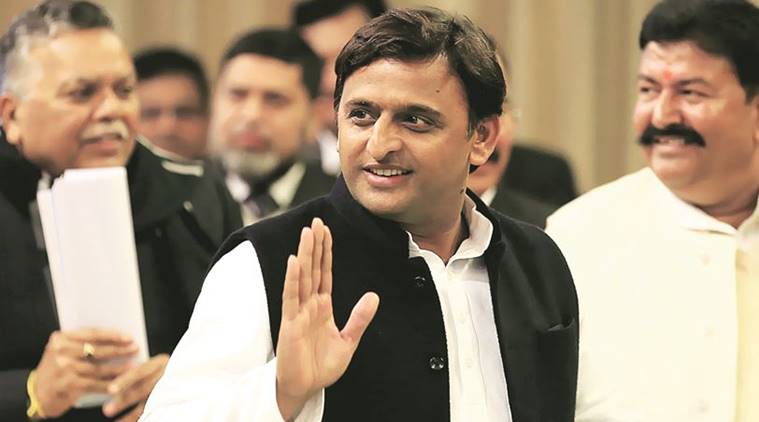His camp’s equation: Akhilesh Yadav is Mulayam plus
Akhilesh's supporters expect him to move beyond the Yadav-Muslim combine that has been the SP’s mainstay, and further distance it from its image of a party of goons.
 The supporters also cite the positive message the young CM has sent out by keeping wife and MP Dimple Yadav by his side at many public functions. (Vishal Srivastav/File photo)
The supporters also cite the positive message the young CM has sent out by keeping wife and MP Dimple Yadav by his side at many public functions. (Vishal Srivastav/File photo)
Akhilesh Yadav’s supporters in the Samajwadi Party say there is going to be a sea change in the party’s politics under him. They expect him to move beyond the Yadav-Muslim combine that has been the SP’s mainstay, and further distance it from its image of a party of goons. They give the example of how the Chief Minister changed the party’s line on computers and English, how he is himself available on Twitter and Facebook and uses the social media to communicate, and how he has launched projects like the Women Powerline, where women can complain about crank calls, and Dial 100, an emergency police response system based in Lucknow, dispelling the notion of running a government soft on crime.
The supporters also cite the positive message the young CM has sent out by keeping wife and MP Dimple Yadav by his side at many public functions. In a misogynistic state like Uttar Pradesh, and in a family where women have earlier held public office but none has had a public presence, that means a lot.
Sources close to Akhilesh also say that with uncle Shivpal Yadav and controversial party MP Amar Singh seeking to have their say before what will be his first poll outing as CM, it was now or never for him — even though they insist the showdown was not planned.
“Akhilesh becoming party president is the end of the SP being associated with casteism, regionalism and sheltering goons,” says Sunil Kumar Yadav, MLC. “Today, Akhilesh is being compared with Prime Minister Modi. The comparison of a CM with the PM itself says a lot about the person and his work.”
Satyavir Singh Yadav, a retired Army colonel associated with the SP since early 2000 and the president of the party’s ex-servicemen cell, talks about Akhilesh’s first appointment after becoming party president. “He picked Naresh Uttam as state chief. He could have chosen Dharmendra Yadav (Akhilesh’s cousin), but he chose Uttam, who comes from a different caste and a different region than the family.”
The SP may have long believed in holding out largesse to the Yadavs to keep them close to the party, but Satyavir says Akhilesh has changed that game. “The Yadavs see the future in him. They know he can reach new heights because he is acceptable to all castes and communities,” he says.
Cabinet Minister Rajendra Chaudhary, who has been closely associated with Mulayam Singh Yadav, also sees the potential for the SP to break new ground under Akhilesh. “This is the beginning of new politics of new times. The last Assembly elections saw the caste barrier being broken. It was not a victory just because of any caste combination. This barrier will further be broken under his leadership.”
In 2012, the SP won not just seats dominated by its traditional vote bank, Yadavs and Muslims, but also constituencies and areas where various castes hold the key to victory. The youths and urban voters were seen to be supporting the SP for the first time, with the party winning three constituencies in Lucknow city which it had never won in the past.
As for the Muslim vote bank, political scientist A K Verma claims that they too may not leave Akhilesh’s side. According to him, most party supporters and cadres believe Akhilesh’s ascendance has Mulayam’s tacit support.
Akhilesh has also assiduously built a development image. He didn’t just relaunch the schemes from his father’s previous government, like the unemployment allowance and the Kanya Vidya Dhan Yojana for girl students, but also pushed for distribution of laptops to those who clear Class 12.
He initiated the development of an IT City on the outskirts of Lucknow and strongly pushed the construction of the 302-km Agra-Lucknow Expressway and the Metro rail in Lucknow. Calling development of infrastructure his target, he has announced the construction of another Expressway, connecting Lucknow with Ballia, on the Bihar border.
His aides also cite the easy access to him as a reason for his popularity. He hears public grievances at his residence, and is a presence almost daily at programmes in the city as well as state.
Ultimately, however, what will count is how much of that translates into votes.



- 01
- 02
- 03
- 04
- 05




























